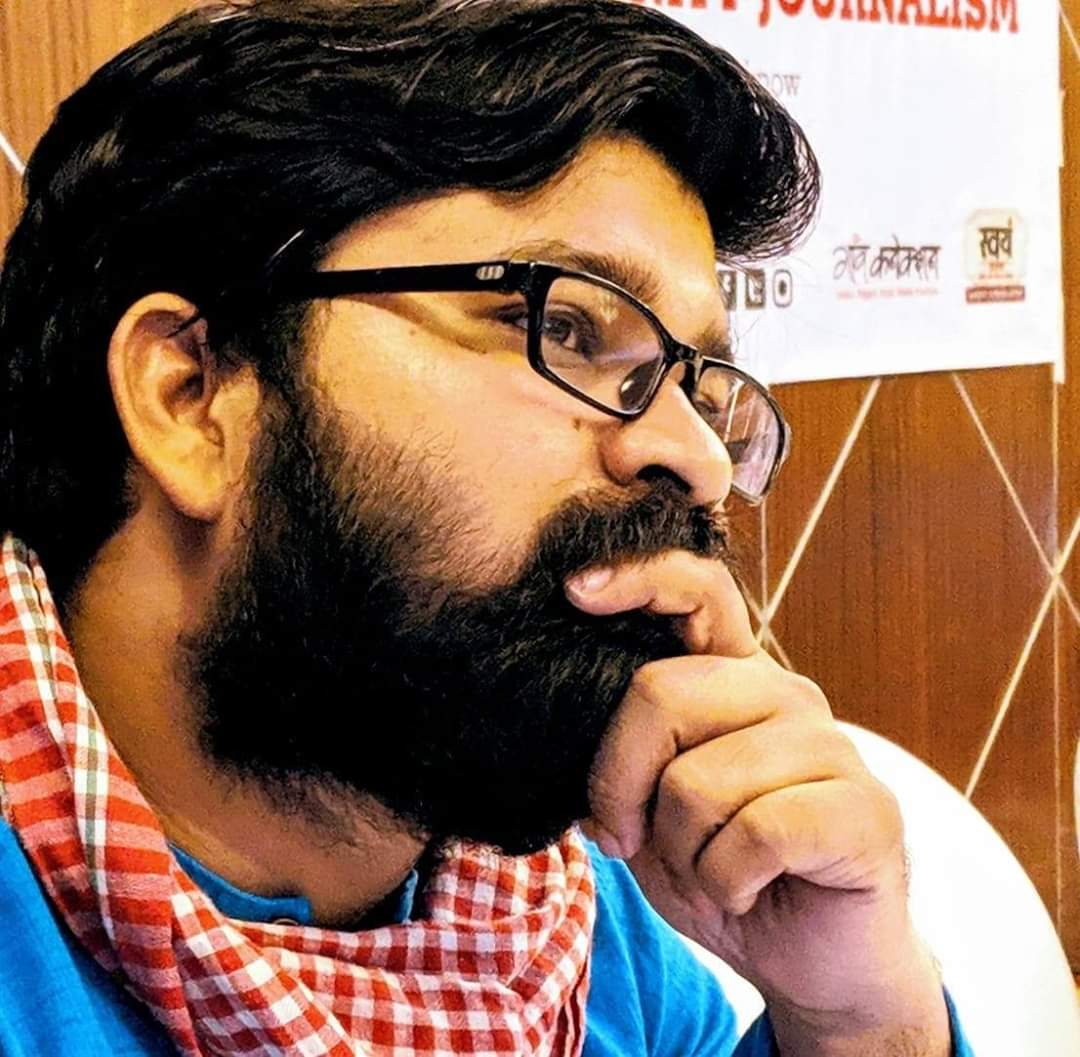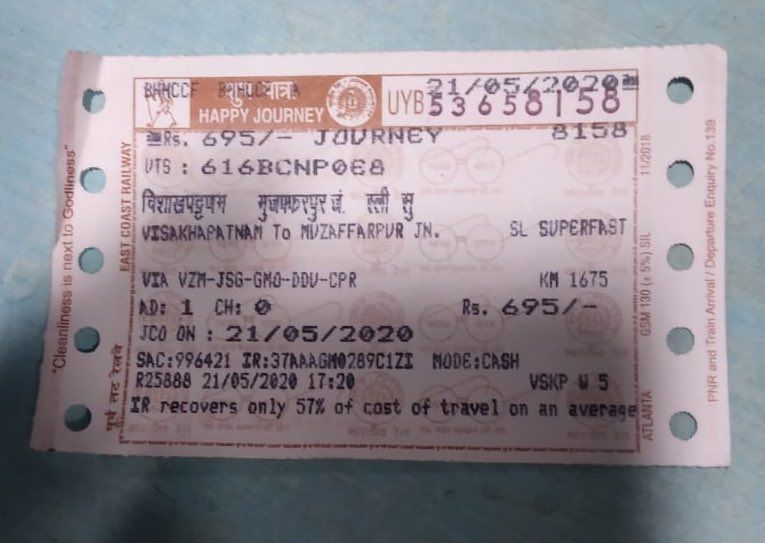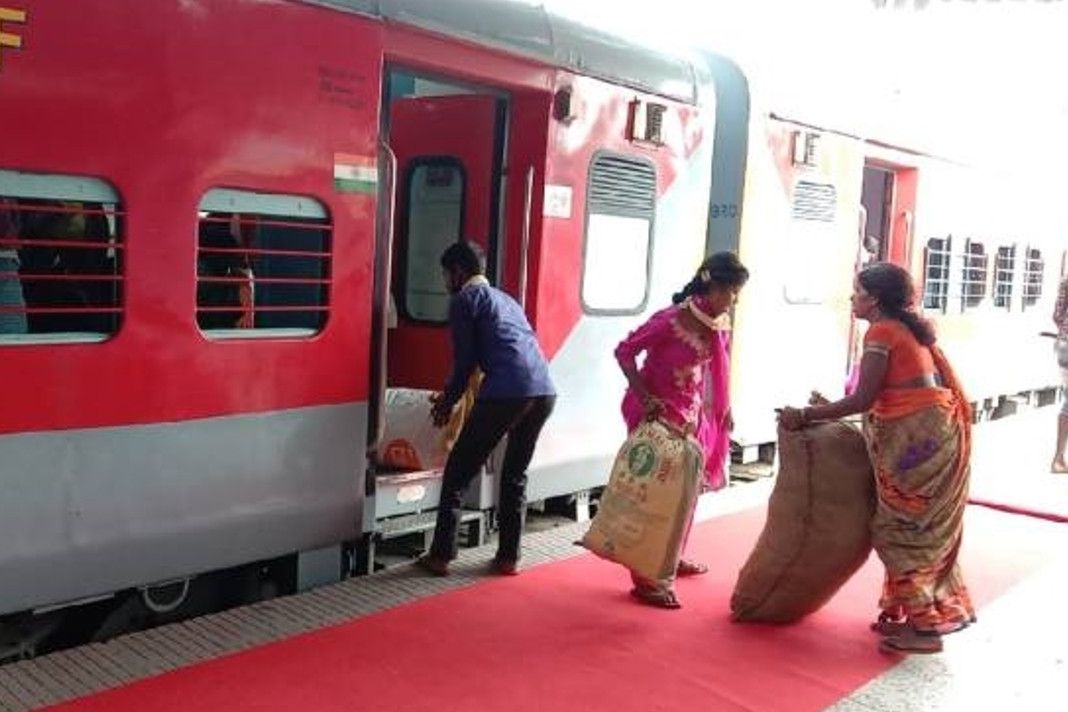Double the fare, delays, instances of people having to drink toilet water … it’s not a happy journey
The Shramik Special trains are running far behind their scheduled time. The migrant labourers on board these trains are not getting food or water. This is adding to their woes in this scorching heat

The Shramik special trains that were started so that migrants labourers stranded in different parts of the country could reach their homes safely, are, ironically, proving fatal for them. As per the report quoting the Railway Protection Force (RPF), as many as 80 labourers have died in these Shramik special trains between May 9 and May 27. The Railways has so far transported more than 52 lakh people by 3,840 trains to their states.
The Shramik special trains are taking as much as 50 long hours to complete a 25-hour long journey. Many trains were delayed by as much as 72 hours. This is adding to the discomfort of the passengers who have already suffered a lot during the nationwide lockdown. This is why starving and thirsty passengers are creating ruckus at railway stations by looting food items, and also losing their lives. What’s more, these labourers are forced to pay more than the fixed fare price for the travel.
“We were charged Rs 1,200 for a ticket worth Rs 695. In spite of that, we had to sleep hungry that night. We weren’t provided with water. As water was not running in the taps that were outside, we had to drink water from the taps that were in the toilet,” said Darshan Kumar, who was coming from Visakhapatnam in Andhra Pradesh to his home in Muzaffarpur, Bihar by a Shramik special train.

On May 23, at around 10 am, when a Shramik special train coming from Visakhapatnam in Andhra Pradesh stopped at the Pandit Deendayal Upadhyaya station, people were seen rushing for water at the platform. These migrant workers are alleged to have looted water bottles from the food stalls at the platform. This video went viral on the social media.
Darshan Kumar, who hails from Lakhisarai in Bihar was also traveling in the same train. He told Gaon Connection: “On May 21, we left Visakhapatnam at 10 PM. We were a group of 22 people. We used to work together in a company and are daily wagers. We were asked to pay Rs 1,200 for the ticket worth Rs 695. We were charged Rs 26,400 for the fare.”
He added: “We were stranded in that city for over two months. We felt that we were charged more money for the food and water in the train. Although we had packed some food and water for the journey, but how long could it have lasted? When the tap near the gate went dry, we had to drink water from the toilet.”
“In the three-day journey, I could only manage to find myself one packet of biscuits at one station. Yesterday (May 22) the train stopped running at around 11pm. We thought that it would run after a while but it didn’t until morning. In the morning, when we inquired, it was found that the train was standing at the outer stretch of the Deendayal railway station (Mughalsarai). After 8 AM, we all went out of the train. We all were was hungry and thirsty. As soon as the train stopped at the station, many started stealing everything they could,” explained Darshan.

On May 21, this train reached Muzaffarpur in Bihar. According to the Indian Railways, the distance from Visakhapatnam to Muzaffarpur is about 1,585 kms, which can be covered in about 28 hours, but this Shramik special train took nearly 46 hours to cover this journey. This means that the train was running late by about 18 hours.
Sudhir Das who hails from Sheikhpura district of Bihar was also traveling in the same train. He said: “For the last two months, I didn’t have any jobs in Visakhapatnam. I didn’t have money to buy food. We thought that we won’t be charged the travel fare, but later we gotten to know that we have to pay Rs 1,200 for the fare. We then somehow arranged for the money. We also packed some food and water for the journey, but we didn’t know that the train would take so long to reach. We were thirsty. Had there not been water in the toilet, we would have died.”
According to a media report, 40 special trains have deviated from their routes (until May 23). In a tweet, Piyush Goyal, the Union Railway Minister, wrote that all of the trains have reached their destination. However, many trains were diverted due to difficulties in the routes at many places.
On the same tweet, the railway minister replied that 80 per cent of the special trains are going to either Uttar Pradesh or Bihar, leading to congestion on these routes. Such trains are, in fact, being diverted.
A Shramik special train carrying about 1,450 people from Bengaluru was headed towards Basti in Uttar Pradesh. When the train was stopped, people thought they had reached home, but the train had instead arrived at Ghaziabad. It was informed that the train has been diverted due to the route being occupied.
Similarly, on May 21, a train from Lokmanya terminal in Maharashtra that left for Patna in Bihar reached Puruliya station in West Bengal. The route of yet another train was also shifted from Darbhanga to Rourkela.
However, in the entire case, the railways issued a statement citing its reasons. Ravinder Bhaskar, the chief PRO of Western Railway said: “Due to more trains being run, routes are more crowded than usual. So we had decided to divert the train and take it from an alternate route.”
Vinod Kumar Yadav, the Railway Board Chairman, said that there are more trains on the route of Uttar Pradesh and Bihar, so diverting trains was usual. He said that the train will definitely carry all the labourers to their destination.
There have been instances when passengers have also died in these trains. On May 27, In Maharashtra, the dead bodies of two labourers were found from the train number 01770 of Shramik Express train that was running from Lokmanya Tilak terminal in Mumbai to Varanasi.
On May 23, Mohammad Pintu, who hails from West Champaran district in Bihar left for Patna from Delhi. On May 25, he reached Muzaffarpur Junction from Danapur. His four-year-old son Irshad died while boarding the train to Betiya in Muzaffarpur. In a statement, Pintu informed that his son died of hunger, thirst and humidity.
Talking about the incident, Kamal Singh, the district information public relations officer, Muzaffarpur said: “The child had fallen sick during the journey and this is why he died.”
On May 21, Mohammad Anwar, 55, who hails from Katihar, left for his home from Bandra terminal in Maharashtra in a Shramik special train. Later, on May 23, he died at Barauni Junction. Many such deaths continue to take place during the journey in these special trains.
Arveena Khatun, 35, who hails from the same village as Anwar. was returning to Bihar from Ahmedabad in a Shramik special train with his sister and brother-in-law. On May 24, they boarded on the train and later, on May 25, his sister succumbed to death.
When the train arrived at Muzaffarpur Junction at around 3 PM, the railway police offloaded the body and placed it on the platform. The two-and-a-half-year-old child of Arveena, standing near the body, was constantly tugging at the sheet covering its mother’s body. This video went viral on social media.
Thereafter, the Patna High Court took self-cognisance of the matter and sought a response from the Bihar government.
On May 29, Vinod Kumar, the Railway Board chairman, said that the matter is under the investigation. Vinod Kumar Yadav also trashed the reports of the train straying. Talking about the trains being delayed, he said that there were only four trains which took more than 72 hours to reach their destination. He also informed that 3,840 trains have reached their destination in less than 72 hours and 90 per cent of the trains have arrived on time. He also said that the route of the trains had to be diverted due to several reasons. Besides, he said that the allegation of one of the trains running late by nine days was wrong.
He also appealed people suffering from serious illness to avoid train travel. He advised pregnant women, children under 10 years of age and elderly above 65 years to not travel unless absolutely necessary.
Mithlesh Pandey who hails from Bhadohi in Uttar Pradesh was stranded in Surat, Gujarat. On May 23, he reached his home in Varanasi by the Shramik special train. Talking about the journey, he said: “On May 20, we left Surat at around 7.30 pm. On May 23, we reached Varanasi at around 2 PM. It took a whole day to reach Jabalpur from Katni. It took another whole day to reach here from Jabalpur. Usually, it takes 24-25 hours to reach our homes, but this time the train took more than 50 hours to reach Varanasi.”

